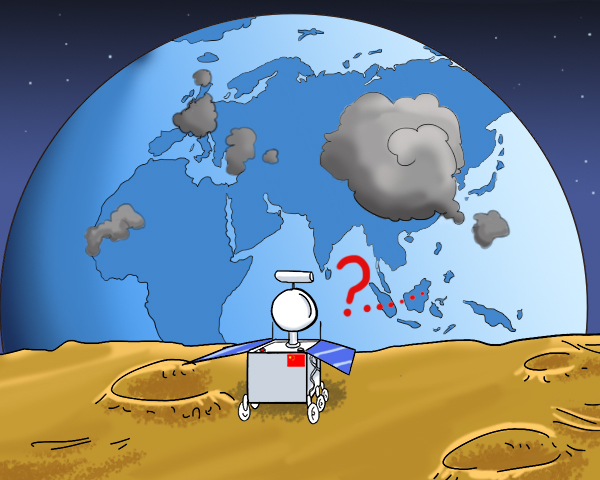Toxic omissions
- By Chen Ying
 0 Comment(s)
0 Comment(s) Print
Print E-mail Beijing Review, September 22, 2014
E-mail Beijing Review, September 22, 2014
The New York Times published five reports in July and August detailing China's environmental pollution issues, including carbon dioxide emissions and "toxic haze." Given that Beijing will continue to suffer under heavy smog if change is not effected, we should not reject demonstrations of concern from abroad regarding the health of Chinese people. It should be noted, however, that these articles contain a number of generalizations and invalid arguments.
|
|
|
Clear skies once in a blue moon [By Yang Yongliang/China.org.cn] |
For instance, one of the reports, titled Persuading China to Act Fast on Climate Change, asserts that the most pressing issue regarding the slow action taken to combat climate change is "not whether the United States will manage to wean itself off of coal, or even how quickly the U.S. economy can reduce its reliance on fossil fuels," but "to what extent and under which conditions China will participate in the global effort to combat climate change." On these grounds, the report concluded that the world must persuade China to cut its emissions.
Together with the skyrocketing economic growth of many developing nations, the quantity of these countries' greenhouse gas emissions has been continuously increasing and accounts for a larger share in the world today than ever before. However, this does not change the fact that developed countries must acknowledge their historical and current responsibility for global climate change. According to the Fifth Assessment Report of the International Panel on Climate Change—a report which calculated the world's cumulative carbon emissions from 1751 to 2010 on the basis of carbon dioxide emitted solely through the burning of fossil fuels—developed countries account for around 70 percent of historical global carbon emissions. Meanwhile, if one adds carbon dioxide emissions generated from forestry and land utilization into consideration, the share of responsibility for developed nations drops to nearly 50 percent. As calculation of the latter category has great uncertainty, however, academic opinions are divided over the computation methodology.
Scientists were pointing out the harmful consequences of the greenhouse effect long before intergovernmental climate change negotiations were launched in 1990. As carbon dioxide can stay in the air for more than a century, the pollutant emissions spewed into the atmosphere even during the Industrial Revolution still linger today, affecting the world's climate system.






